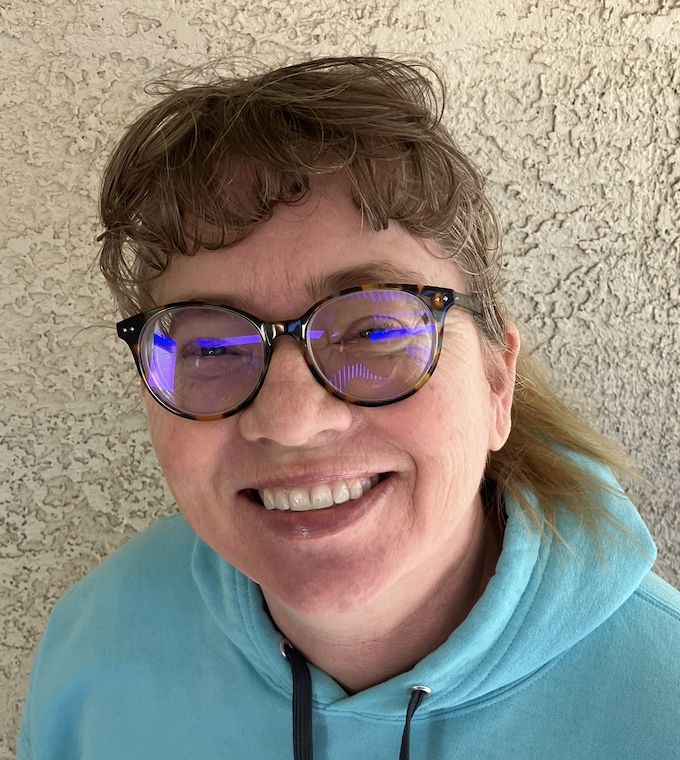 Brenda J. Buck
Brenda J. Buck
Professor of Geology
Director of UNLV-FIA, National Operations.
Office: SEB 4131
Phone: (702) 895-1694
Email: buckb@unlv.nevada.edu
Education:
Ph.D. New Mexico State University
Previous Research interests:
Dr. Buck’s previous research focuses on Medical Geology, in particular how geological materials impact health, especially focused on dust and hazards associated with dust exposure including those from asbestiform minerals, arsenic, and other carcinogens.
http://www.unlv.edu/sciences/research/natural-asbestos
Selected Publications:
Wolfe*, C., Buck, B., Miller, A., Lockey, J., Weis, C., Weissman, D. Jonesi, A., and Ryan, P., 2017, Exposure to naturally occurring mineral fibers due to off-road vehicle use: a review. International Journal of Hygiene and Environmental Health. pii: S1438-4639(16)30583-1. https://doi.org/10.1016/j.ijheh.2017.07.003
Baumann, F., Buck, B. J., Metcalf, R. V., McLaurin, B. T., Merkler, D., Carbone, M. 2015. The presence of asbestos in the natural environment is linked to mesothelioma in young individuals and women in Southern Nevada. Journal of Thoracic Oncology. 10: 731–737 https://www.sciencedirect.
Metcalf, R.V., and Buck, B.J., 2015, Genesis and health risk implication of an unusual occurrence of NaFe3+-amphibole: Geology v. 43, p. 63-66, doi:10.1130/G36199.1 https://doi.org/10.1130/G36199.1
Buck, B.J., Goossens, D. Metcalf, R.V., McLaurin, B., Ren, M., and Freudenberger*, F., 2013, Naturally occurring asbestos: Potential for human exposure, southern Nevada USA, Soil Science Society of America Journal, 77:2192-2204. doi:10.2136/sssaj2013.05.0183. https://www.unlv.edu/sites/default/files/50/Sciences-AsbestosResearch-SSAJ-77-6-2192.pdf
Buck, B.J., King, J., and Etyemezian, V., 2011, Effects of Salt Mineralogy on Dust Emissions: Salton Sea California, USA, Soil Science Society of America Journal 75:1958-1972 https://acsess.onlinelibrary.wiley.com/doi/abs/10.2136/sssaj2011.0049
Synopsis
Dr Brenda J. Buck is an interdisciplinary scientist and public intellectual who excels in multiple field and laboratory aspects of warm desert research. She has just over $16 million in grant funding over her career. Dr. Buck has served as a researcher, collaborator, and teacher for field expeditions to 18 countries on 6 continents.
Dr. Buck’s early research covered many aspects of arid soil science including desert soil pedology, soil-geomorphology, salt mineral formation and processes, desert paleosols and paleoclimate (including Quaternary, Tertiary, and Mesozoic), salt tectonics/petroleum exploration, mineral dusts, biological soil crusts, and environmental contamination (depleted uranium, arsenic, asbestos). In her mid-career she shifted her focus to Medical Geology, which is an interdisciplinary field that studies how Earth materials affect human and animal health. Her research focused on processes that create and transport mineral dust, bringing it into contact with people.
She is currently the Director of the UNLV-FIA Research Group, National Operations: ~ 15-25 employees who partner with the Forest Inventory and Analysis (FIA) Program of the US Forest Service to assist with providing the information needed to assess America’s forests.
Dr Buck has been widely recognized by her peers for her outstanding achievements, including being elected to the Fellowship in both the Soil Science Society of America (2012) and the Geological Society of America (2008). In 2007, she was awarded the prestigious M.L. & C.M. Jackson Award from the Soil Science Society of America for outstanding contributions in Soil Mineralogy/Chemistry. She was the 16th recipient, and the 1st female to receive this award. Dr. Buck has also been honored by receiving the Outstanding Plant and Environmental Science Department Alumnus Award (NMSU, 2015) and the Editor’s Citation for Excellence, Associate Editor, Soil Science Society of America Journal for outstanding professional contribution in the oversight of manuscript reviews (2016). She is currently an Association for Women Geoscientists Distinguished Lecturer (2022-present).
Dr. Buck has published 372 items which include: 72 peer-reviewed journal articles, 18 peer-reviewed non-journal publications, 93 non-peer-reviewed reports, and 189 published abstracts. A high percentage of these publications include student authors. Across all categories, 71% of geoscience students performing research under her supervision are/were from underserved or underrepresented groups (66% of high schoolers, 78% of undergrad, 54% of M.S., and 80% of Ph.D. students). The UNLV-FIA computer science student interns include a total of 26 undergraduate students, 70% of whom are/were from underserved or underrepresented groups.